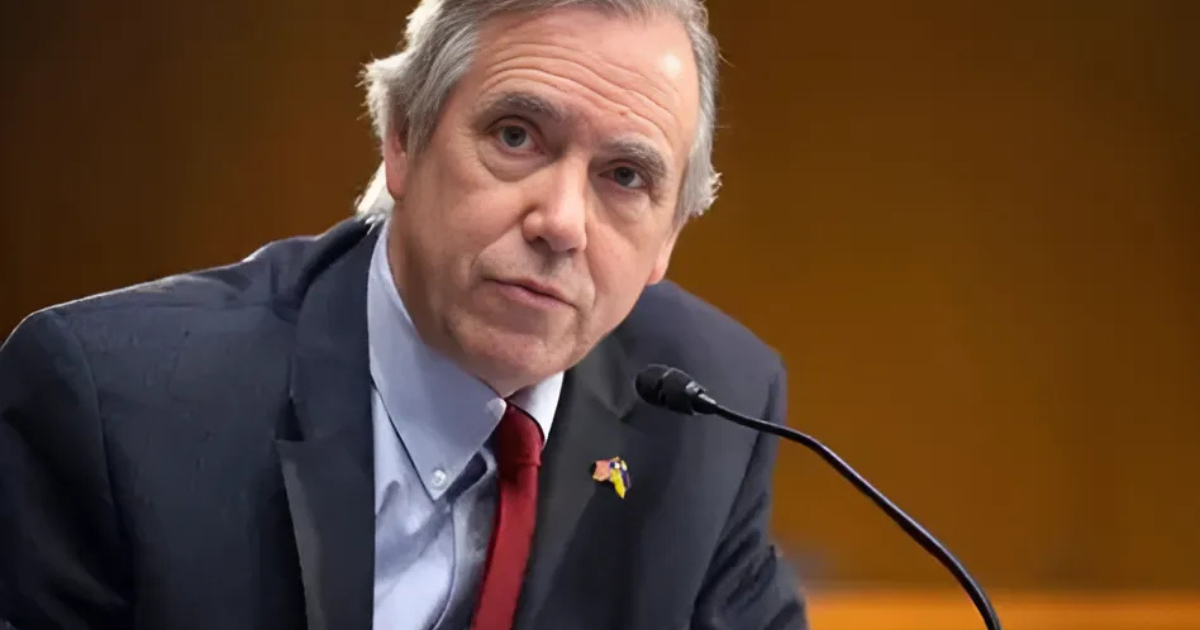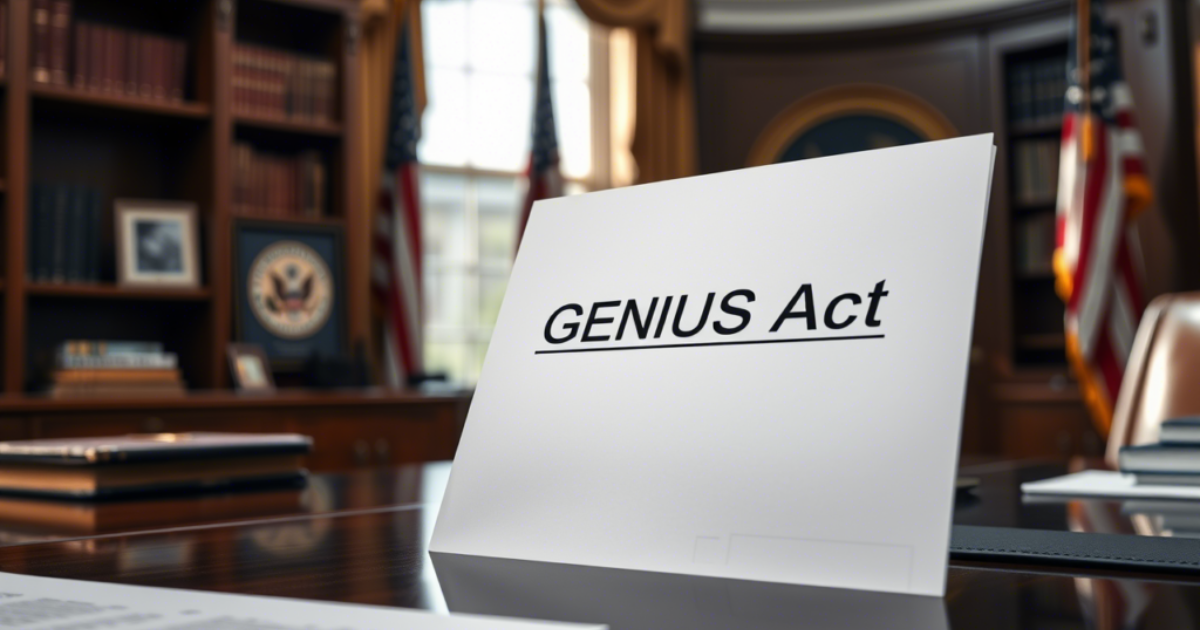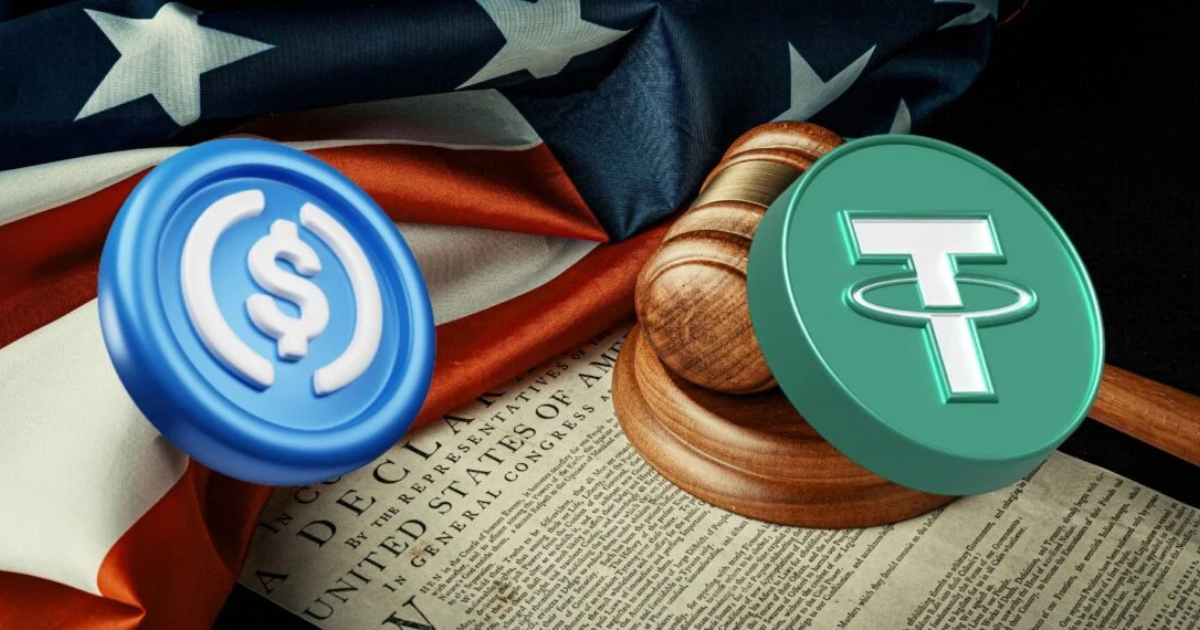With the U.S. Senate approving a comprehensive set of stablecoin regulations, the Landmark Genius Act is the first of its kind in history in this regard. With a 68-30 vote on June 17, 2025, there was a robust bipartisan support to the bill. Most of the Republicans including eighteen Democrats supported it. It now goes to the House of Representatives to gain final approval.
Key-Takeaways:
- Landmark Genius Act received vital bipartisan support and passed by a senate vote of 68-30
- The bill creates the initial and broad-based federal legislative scheme to regulate stablecoins
- The legislation has to be approved by House of Representatives before it can be turned into law
Explicit Regulations through Federal Framework

The Landmark Genius Act establishes the first complete federal regulation of the issue of stablecoins in the United States. The law requires that payment stablecoins can be issued by qualified issuers such as insured bank subsidiaries, or authorized state institutions.
Smaller ones are allowed to work under the supervision of the state whereas bigger producers, surpassing 10 billion circulation, become under the federal control. All stablecoins must be supported by 100 percent reserve backing in U.S. dollars or short term Treasuries under the Landmark Genius Act.
Within the framework of Landmark Genius Act, the consumer protection measures are represented by the requirements of monthly public reserve filing and annual audits of major issuers. The annual auditing processes are strict and companies whose market capitals value is over 50 billion are required to be audited.
The bill bans issuers to market stablecoins as FDIC-insured or government-secured instruments. These measures are designed to safeguard the consumers as well as to give regulatory clarity of the expanding stablecoin market.
Bipartisan Negotiations and Political Problems

The Landmark Genius Act had to endure many political challenges before it could land on the senate floors to be passed into law. The early argument against this by Democrats was driven by the conflict of interest issues over the cryptocurrency dealings of former President Trump.
Senator Jeff Merkley was particularly critical of the bill, denouncing Republicans as being complicit in creating presidential profiteering by means of digital assets. The Landmark Genius Act took months of highly intensive negotiation to overcome these Democratic objections and win over enough votes.
Some of the compromises that were included in the Landmark Genius Act featured additional security protection at the national level and more ethics as well as anti-money laundering safeguards. Senator Bill Hagerty labeled the vote-securing process as murder whereas Senator Cynthia Lummis admitted that it proved more difficult than expected.
The final version was only voted against by two Republicans Senators Rand Paul and Josh Hawley. The updated Landmark Genius Act effectively countered major Democratic concerns, without losing Republican votes on passage.
Landmark Genius Act deals with the stablecoin industry, which grossed more than 250 billion in total value. Treasury Secretary Scott Bessent estimates that the market may grow to more than 2 trillion in the following years.
The law expands the list of organizations that are authorized to issue stablecoins, such as banks, fintech companies, and big-box retailers. The Landmark Genius Act gives the Secretary of Treasury control over this scaled up regulatory structure which consolidates the responsibility of the oversight.
Approval of House and Legislature Future

The Landmark Genius Act is now pending approval in the House of Representatives where Republican leaders stand behind a comparable stablecoin bill. House Majority Whip Tom Emmer has encouraged the Financial Services Committee to move pro-stablecoin legislation by the end of July.
The House is crafting its own STABLE Act, which differs with the one in the Senate in regulation oversight frameworks. Landmark Genius Act provides consolidation of control with Treasury and the House bill decentralizes control among the various agencies.
Both legislative proposals prevent the existence of yield-bearing consumer stablecoins but treat regulatory frameworks differently. Based on the suggestion by Republican leadership in the House, there are positive forecasts of passing the Landmark Genius Act or another legislation of the kind.
Industry observers hope subsequent enactment will produce the first holistic federal stablecoin regulations worldwide. The Landmark Genius Act is a game-changer in the field of regulation on digital assets and the future of innovative financial craft within the U.S.
Conclusion

The Landmark Genius Act is a turning point in crypto control and cooperation across divided parties. Its passage by the Senate takes the federal stablecoin oversight forward. Much clarity in the digital asset space desperately needs to take place with house approval. The legislation is an indicator of changing political fortunes concerning crypto policy and innovation.











